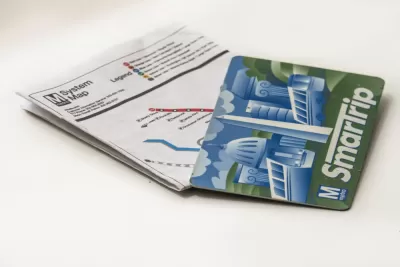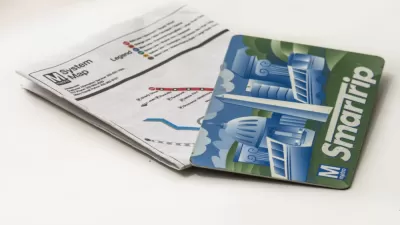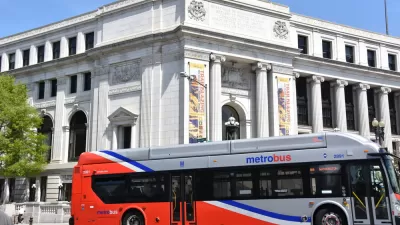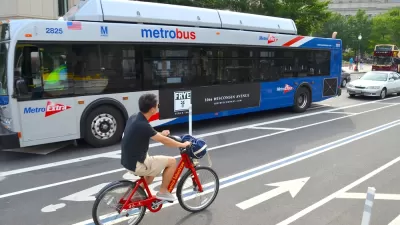A proposal to charge riders who pay fare in cash an extra 25 cents faces criticism.

Ron Thompson writes:
In an effort to speed up bus trips, WMATA has proposed a $0.25 fee for actions which slow down boarding, including paying with cash and reloading SmarTrip cards onboard. While speeding up bus service would be a boon for all riders, this proposal shifts the responsibility for dealing with a systemic issue onto individual clients—the poorest ones.
As implied by the end of that passage, Thompson suggests that the transit agency has many responsibilities in reducing dwell time, as do external factors like single-occupancy drivers. "Yet rather than focusing on the root causes of the issue, the agency is passing the buck to its most vulnerable—and most faithful—riders," according to Thompson.
Research noted in the article finds that many low-income people are also underbanked, and a penalty for cash payment would reinforce the perception that some riders matter more than others, according to Thompson.
FULL STORY: If WMATA makes buses more expensive for cash users, low-income riders could lose

Study: Maui’s Plan to Convert Vacation Rentals to Long-Term Housing Could Cause Nearly $1 Billion Economic Loss
The plan would reduce visitor accommodation by 25,% resulting in 1,900 jobs lost.

Placekeeping: Setting a New Precedent for City Planners
How a preservation-based approach to redevelopment and urban design can prevent displacement and honor legacy communities.

Using Old Oil and Gas Wells for Green Energy Storage
Penn State researchers have found that repurposing abandoned oil and gas wells for geothermal-assisted compressed-air energy storage can boost efficiency, reduce environmental risks, and support clean energy and job transitions.

Washington State Plans Ambitious ‘Cycle Highway’ Network
The state is directing funding to close gaps in its existing bike network and make long-distance trips more accessible.

Homeowners Blame PG&E for Delays in ADU Permits
The utility says it has dramatically reduced its backlog, but applicants say they still face months-long delays for approvals for new electrical work.

Rethinking Wildfire Defense: How a Landscape Approach Can Protect Neighborhoods
Post-fire analysis of the Eaton Fire reveals that a landscape approach — including fire-resistant vegetation, home hardening, and strategic planning — can help reduce wildfire risk, challenging assumptions that trees and plants are primary fire hazards.
Urban Design for Planners 1: Software Tools
This six-course series explores essential urban design concepts using open source software and equips planners with the tools they need to participate fully in the urban design process.
Planning for Universal Design
Learn the tools for implementing Universal Design in planning regulations.
Borough of Carlisle
Caltrans
Heyer Gruel & Associates PA
Institute for Housing and Urban Development Studies (IHS)
City of Grandview
Harvard GSD Executive Education
Salt Lake City
NYU Wagner Graduate School of Public Service
City of Cambridge, Maryland





























